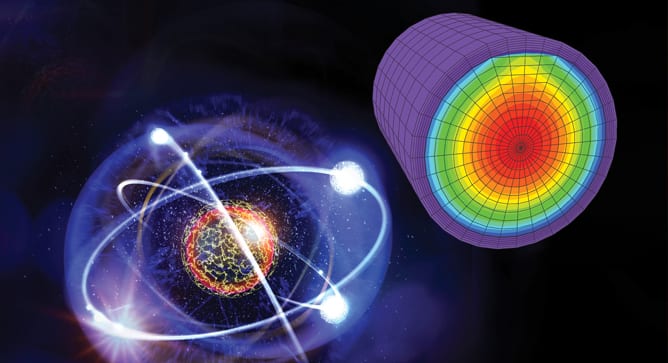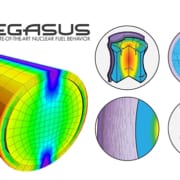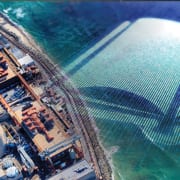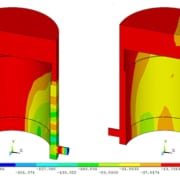News & Views, Volume 49 | PEGASUS: Advanced Tool for Assessing Pellet-Cladding Interaction
By: Bill Lyon, PE and Michael Kennard
PEGASUS provides a fully capable computational environment to solve the unique, detailed 3D analyses required for the evaluation of PCI.
In the current economic environment in which nuclear units compete with less costly energy sources, a quicker return to full power correlates to more power generated and increased operating efficiency. This may be achieved with shorter startup post-refueling or a quicker return-to-power following any number of plant evolutions including load follow, control blade repositioning, equipment outage or maintenance, testing, extended low power operation, scram, etc. Such strategies to increase operating efficiency may enhance the risk of pellet-cladding interaction (PCI), a failure mechanism that occurs under conditions of high local cladding stress in conjunction with the presence of aggressive chemical fission product species present at the cladding inner surface. These conditions can occur during rapid and extensive local power changes and can be further enhanced by the presence of fuel pellet defects (e.g., missing pellet surface, MPS). Several commercial reactor fuel failure events in the last eight years, as recently as early 2019, suggest a PCI-type failure cause. To safely manage changes in core operation, the margin to conditions leading to PCI-type failures must be determined prior to implementation of such operating changes.










